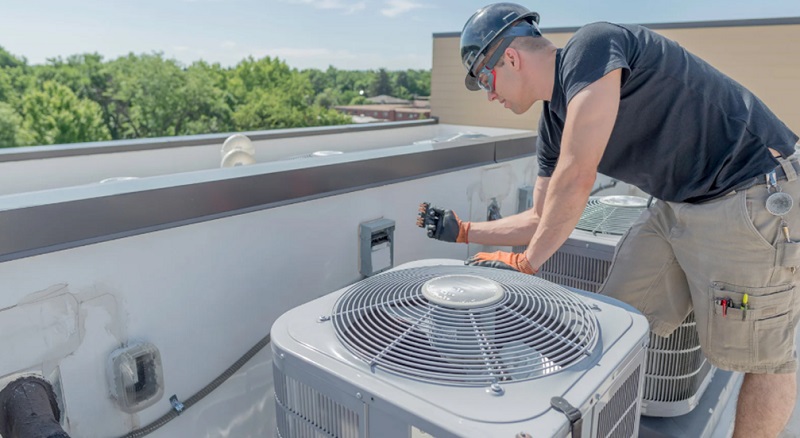Selecting the right HVAC system for your home is crucial for ensuring comfort and energy efficiency. Whether you’re building a new home or upgrading an existing one, understanding the types of systems available and what will best meet your needs can make a significant difference in your home’s environment. Proper heating, ventilation, and air conditioning are crucial for maintaining a comfortable indoor climate year-round. When considering HVAC in Chesapeake, there are several factors to consider to make an informed decision.
Consider Your Home’s Size and Layout
One of the most important aspects of choosing the right HVAC system is understanding the size and layout of your home. A system that works well for a small apartment may not be sufficient for a larger home with multiple rooms and floors. A professional HVAC technician can help assess your home’s square footage, number of rooms, and insulation to recommend an appropriately sized system.
Energy Efficiency and Long-Term Savings
Energy efficiency is another key consideration when selecting an HVAC system. Modern systems are designed to consume less energy, reducing your monthly utility bills. Choosing an energy-efficient system not only helps with cost savings but is also better for the environment. Look for units with high SEER (Seasonal Energy Efficiency Ratio) and AFUE (Annual Fuel Utilization Efficiency) ratings, which indicate the system’s energy efficiency. If you’re unsure about which system will provide the best efficiency for your needs, professional guidance is invaluable. The reasons HVAC Stud is the best HVAC company to choose include their expertise, reliability, exceptional service and the ability to guide homeowners through selecting an energy-efficient system tailored to their specific needs, helping save money in the long run.
Consider the Type of System
There are several types of HVAC systems available, and the right one for you depends on your home’s requirements. Traditional systems use a central furnace and air conditioner to heat and cool your home, while more modern options include ductless mini-split systems. If you live in an area with extreme temperature fluctuations, a heat pump might be a great option. They are an especially good choice for milder climates but can also work effectively in colder regions when paired with supplemental heating.
Indoor Air Quality and Ventilation
When selecting an HVAC system, consider the ventilation features it offers. How home ventilation systems work is critical to keeping the air in your home fresh and free from pollutants. Good ventilation helps remove excess humidity and prevents the buildup of dust, mold, and other allergens. Systems with advanced filtration options, such as HEPA filters, can significantly improve air quality by capturing small particles and allergens.
Professional Installation and Maintenance
Once you’ve selected the ideal HVAC system for your home, proper installation and ongoing maintenance are essential to ensuring its longevity and efficiency. Professional installation ensures that your system operates correctly from the start and avoids potential issues in the future. Regular maintenance, such as cleaning filters, checking refrigerant levels, and inspecting ducts, will help your HVAC system perform at its best. A trusted HVAC service provider can offer maintenance plans that provide regular check-ups to keep your system in top condition. Professional technicians will also identify and address minor problems before they turn into costly repairs.
Conclusion
Choosing the right HVAC system for your home requires careful consideration of several factors, including size, energy efficiency, type of system, and indoor air quality needs. Ensuring that your system is properly installed and maintained will help you maintain comfort while keeping energy costs low. By selecting the right system and working with trusted professionals, you can enjoy a comfortable, efficient home year-round.






